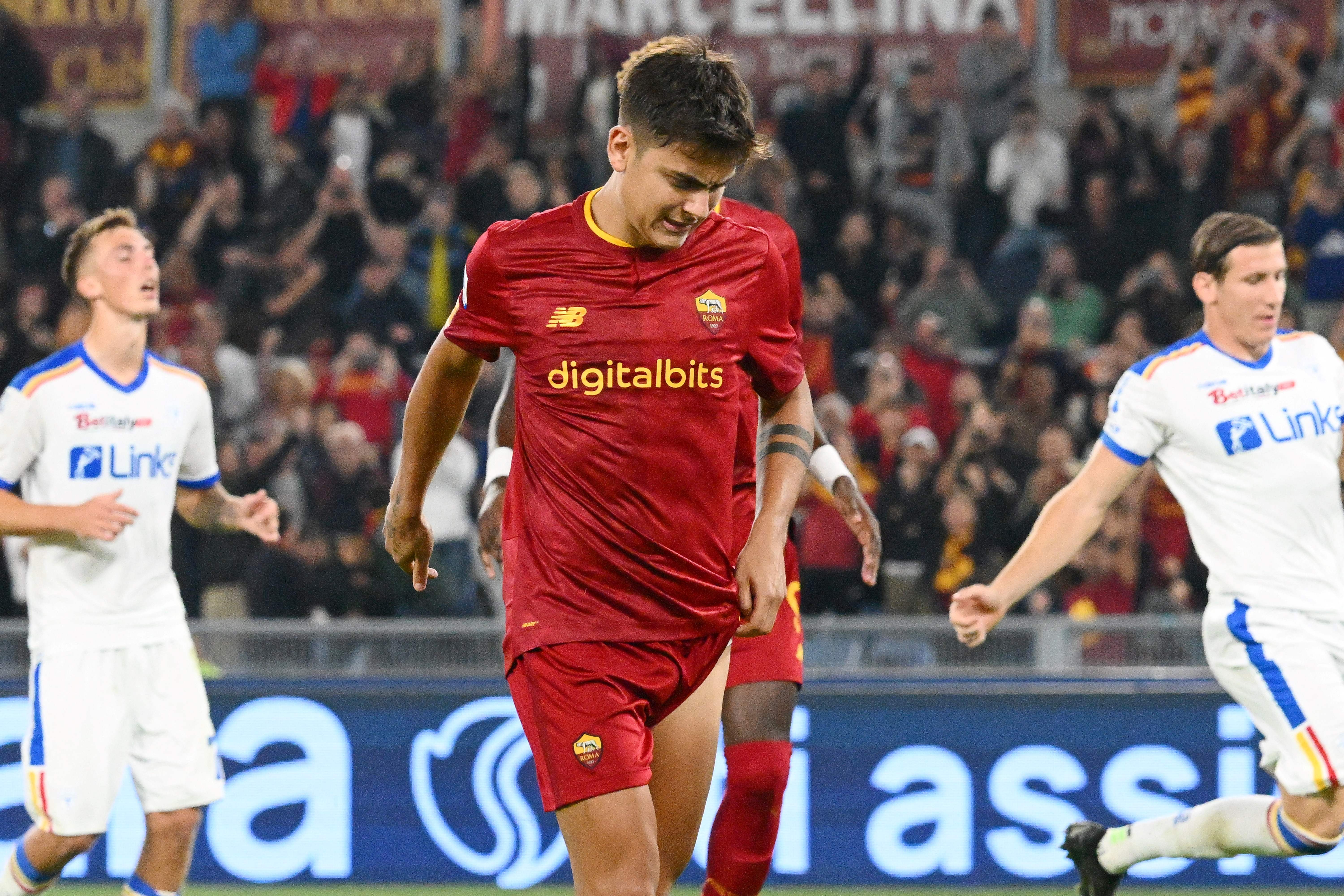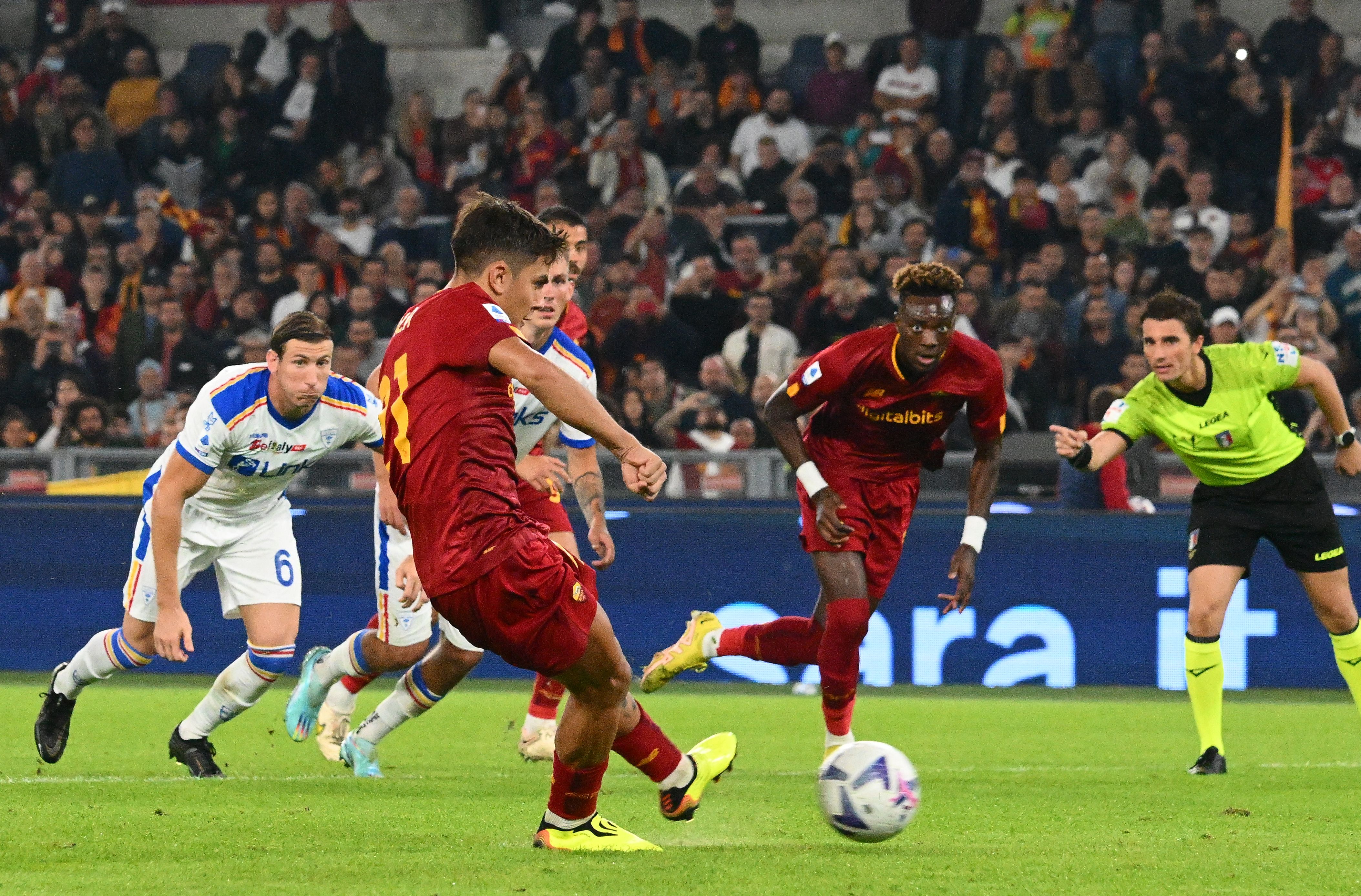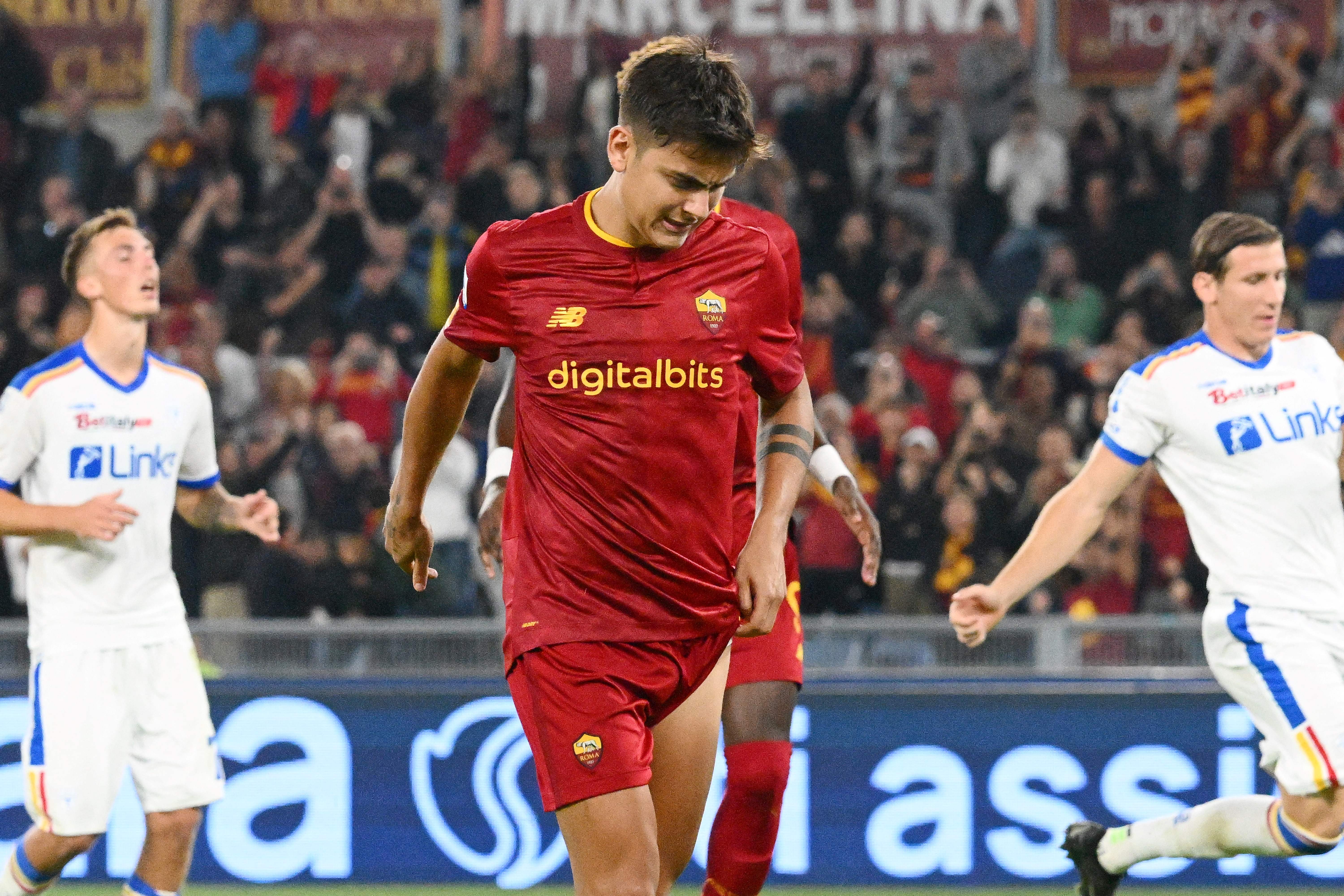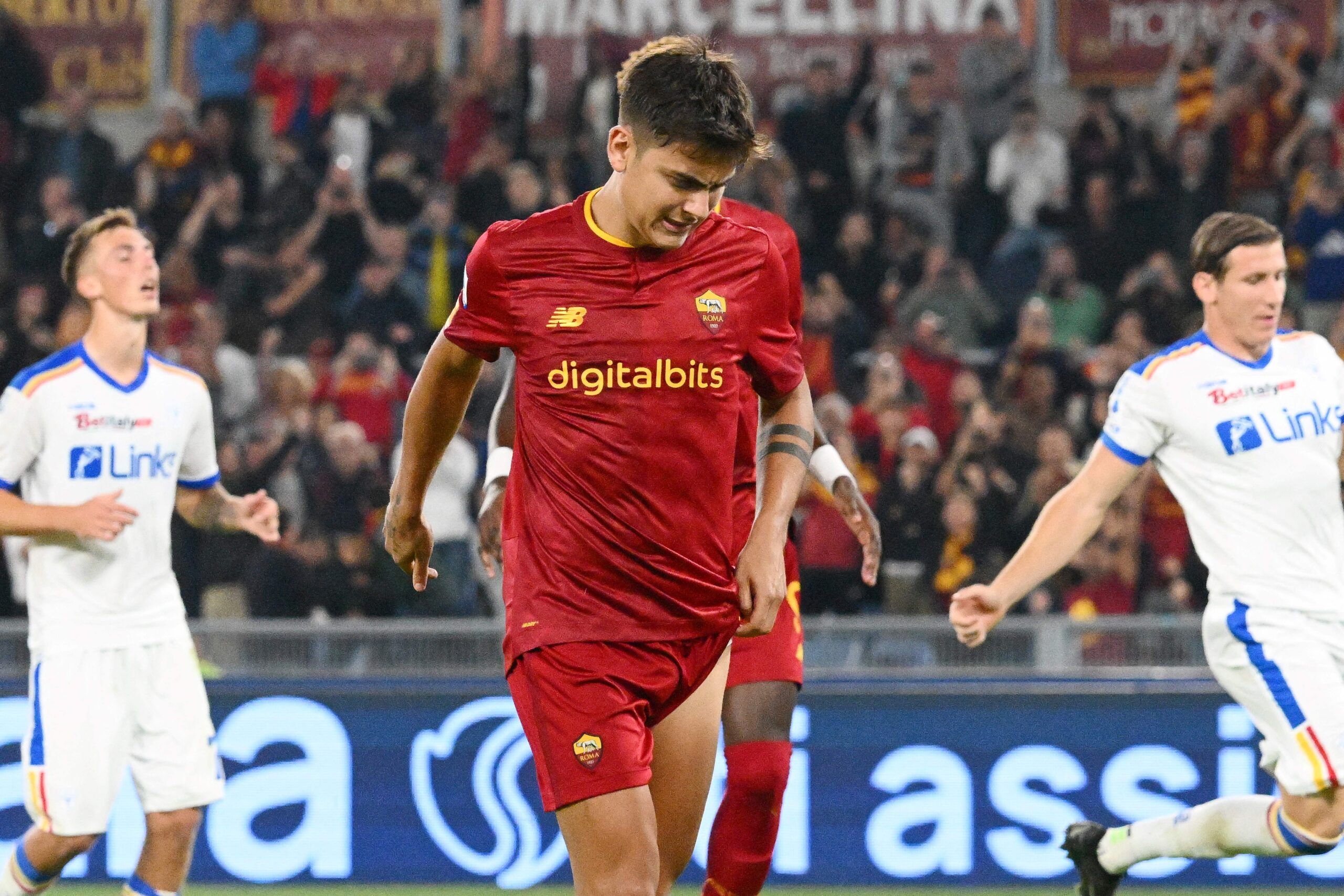Dybala’s Injury Echoes the Agony of a Fallen Hero: A Tragic Cycle of Hope and Despair in Modern Football’s Unforgiving Arena
On October 10, 2022, Paulo Dybala stepped onto the pitch with the weight of expectations resting heavily on his shoulders. The Argentine forward was not just playing for his club; he was a beacon of hope for a nation that reveres football as a unifying force. As he approached the penalty spot, anticipation surged through the stadium, a collective breath held in suspense. Dybala converted the penalty with precision, yet in that moment of triumph, tragedy struck as he felt a sharp pain in his left thigh. This was not just any injury; it was a rectus femoris tear that would sideline him for weeks, casting a shadow over his participation in the Qatar 2022 World Cup.
Fast forward to November 2, 2025, and Dybala found himself in a hauntingly similar scenario. After another stellar season, the forward faced the prospect of yet another injury that mirrored his past. As he left the field, visibly shaken, the echoes of his previous injury reverberated through the minds of fans and analysts alike. The same type of injury, the same emotional turmoil, the same questions about his future. This déjà-vu moment raises critical discussions about the physical and psychological toll that injuries impose on athletes, particularly those like Dybala, who carry the hopes of millions.
In the world of professional football, injuries are often viewed as part of the game, yet the frequency and severity of these injuries have become a pressing concern. The modern athlete is subjected to an intense regimen of training, matches, and recovery protocols that can sometimes be at odds with their physical limits. The pressure to perform at peak levels, combined with the relentless pace of the game, has led to an alarming rise in muscle injuries, particularly in high-stakes situations.
Dybala’s injury history is not an isolated case. Many elite athletes suffer from recurring injuries that can be traced back to their early careers. The rectus femoris, a crucial muscle in the thigh, plays a significant role in sprinting and agility—two essential components of Dybala’s playing style. When athletes push their bodies to the limit, they risk not only immediate injuries but also long-term damage that can haunt them throughout their careers. This cycle of injury and recovery can lead to a mental toll, where the fear of re-injury looms large, stifling performance and enjoyment of the game.
The psychological aspect of injuries is often overlooked. Athletes like Dybala are not just physically impacted; the emotional strain of being sidelined can lead to anxiety and depression. The fear of not returning to form or losing a place in the team can weigh heavily on an athlete’s mind. Dybala’s visible distress upon leaving the field speaks volumes about the mental anguish that accompanies physical setbacks. This emotional burden can be exacerbated by the media scrutiny and fan expectations, creating a vicious cycle of pressure and performance anxiety.
Furthermore, the implications of injuries extend beyond the individual player. Clubs invest millions in their players, and an injury can disrupt not only a team’s performance but also its financial stability. The pressure on medical staff to quickly rehabilitate injured players can lead to rushed recoveries, increasing the risk of re-injury. This systemic issue in professional football raises questions about the management of athletes’ health and the prioritization of immediate performance over long-term well-being.
As Dybala undergoes tests to assess the extent of his latest injury, the football community holds its breath. Will this be another chapter in a tragic narrative, or will he rise once more to reclaim his place among the elite? The uncertainty surrounding his recovery serves as a reminder of the fragility of athletic careers, where glory can be fleeting, and injuries can reshape destinies in an instant.
Dybala’s journey reflects a broader theme in sports: the relentless pursuit of excellence often comes at a high cost. The emotional and physical toll of injuries is a reality that many athletes face, yet the conversation around athlete welfare is often sidelined. As the football world continues to evolve, it must grapple with the balance between performance and health, ensuring that the players who entertain us are not sacrificed in the process.
The narrative of Dybala is one of resilience, hope, and the harsh realities of modern football. His ability to bounce back from adversity has made him a beloved figure, yet the recurring nature of his injuries casts a long shadow. In the end, the question remains: how will the football community address the cycle of injury and recovery to protect its stars and ensure that the spirit of the game endures?

On Sunday evening, Paulo Dybala experienced a déjà-vu identical to the one three years ago.
On October 10, 2022, at the 47th minute, the Argentine stepped up to the penalty spot and precisely converted the penalty kick, but during the execution, he sustained an injury to his left thigh.


Dybala was forced to leave the field immediately, and a few days later, tests diagnosed a rectus femoris tear. An injury, yet another, that seriously put his presence at the Qatar 2022 World Cup in doubt, which was fortunately averted. However, the price was high: he missed nine matches and had a five-week stop.
Si fa ipnotizzare da Maignan, poi arriva anche un nuovo problema fisico ⚠️
Non la miglior serata per Paulo Dybala ❤️🩹 In panchina, con gli occhi lucidi 🥺#Dybala#MilanRoma#SerieAEnilive#DAZNpic.twitter.com/9hw30kGOpM— DAZN Italia (@DAZN_IT) November 2, 2025
Today, the Joya will undergo instrumental tests to assess the extent of the problem and the recovery time. The feeling – according to il Messaggero and La Gazzetta dello Sport – is that it might be the same type of injury, as suggested by the Argentine himself, visibly moved when leaving the field.
This article was translated into English by Artificial Intelligence. You can read the original version in 🇮🇹 here.
📸 VINCENZO PINTO

